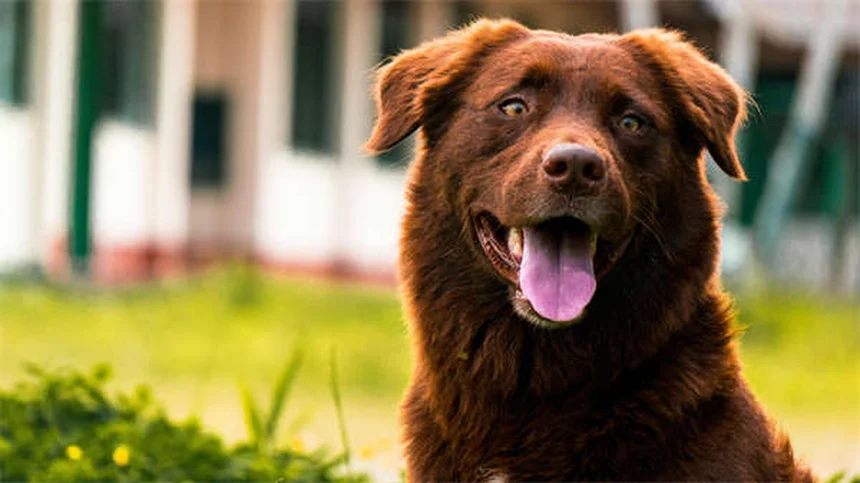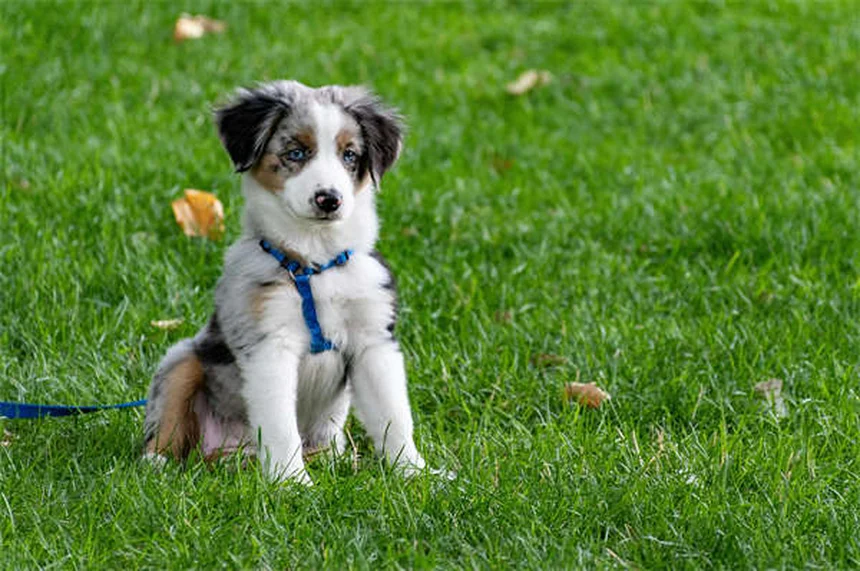What causes diarrhea in guinea pigs? The answer is: multiple factors can trigger diarrhea in these sensitive pets! From dietary mistakes to bacterial infections, guinea pig diarrhea is serious business that requires immediate attention. I've learned through years of caring for these furry friends that their digestive systems are incredibly delicate - what might seem like a minor issue can quickly become life-threatening.
Here's what you need to know right now: diarrhea dehydrates guinea pigs faster than you'd imagine, and some causes are contagious to other pets. That's why we always quarantine affected piggies and call the vet at the first sign of trouble. Remember when my guinea pig Charlie got diarrhea after sneaking too many carrot tops? That experience taught me how crucial it is to monitor both their diet and their poop consistency daily.
In this guide, I'll walk you through everything from spotting early symptoms to emergency care protocols. Whether it's recognizing that telltale smelly cage or knowing when to rush to the vet, we've got you covered with practical advice that could save your pet's life.
E.g. :Catnip Effects on Cats: What You Need to Know
- 1、Understanding Guinea Pig Diarrhea
- 2、The Many Causes of Guinea Pig Diarrhea
- 3、How Vets Solve the Diarrhea Mystery
- 4、Fixing the Problem
- 5、Keeping Your Guinea Pig Healthy Long-Term
- 6、Emergency Situations
- 7、Final Thoughts
- 8、Beyond the Basics: Guinea Pig Digestive Health
- 9、Alternative Therapies Worth Considering
- 10、The Emotional Side of Guinea Pig Care
- 11、Fun Ways to Monitor Health Daily
- 12、FAQs
Understanding Guinea Pig Diarrhea
What Exactly Is Diarrhea in These Furry Friends?
Let me tell you, diarrhea in guinea pigs isn't just messy - it's serious business. While it's more common in young pups than adults, no guinea pig is immune. I check my piggies' poop daily because catching diarrhea early makes all the difference. When stools get soft or watery, that's your cue to call the vet immediately.
Here's why we need to act fast: diarrhea drains their tiny bodies of crucial fluids and nutrients. Within hours, a happy piggy can become dangerously dehydrated. And get this - some causes are contagious! That's why I always quarantine sick piggies until the vet gives the all-clear. Remember that time my guinea pig Charlie had diarrhea after eating too many carrots? We learned the hard way that moderation matters!
Spotting the Warning Signs
You'll know something's wrong when:
- The cage smells worse than usual (and trust me, that's saying something!)
- Their behind looks like a messy toddler after spaghetti night
- Their belly swells up like a little balloon
But it's not just about poop. Sick piggies often lose their spark - they stop popcorning, ignore their favorite veggies, and their fur looks like they've been through a hurricane. Rapid breathing is another red flag. Pro tip: Keep a notebook tracking their normal behavior so you'll instantly notice changes.
The Many Causes of Guinea Pig Diarrhea
 Photos provided by pixabay
Photos provided by pixabay
Diet Disasters Waiting to Happen
Guinea pig tummies are delicate! The main culprits I've seen:
| Diet Mistake | Why It Causes Problems |
|---|---|
| Too many carbs | Throws gut bacteria out of whack |
| Excess fresh greens | Too much moisture in the diet |
| Not enough fiber | Gut motility slows down |
Did you know some antibiotics can trigger diarrhea? Penicillin-based meds are particularly risky. And here's something wild - dental issues can cause diarrhea too! When their teeth hurt, they eat differently, which messes with their digestion.
Germs and Stress Factors
Bacteria like salmonella and e. coli don't play nice with guinea pig guts. Parasites are another invisible threat. But here's a question: Why does stress cause diarrhea? Simple - when piggies feel crowded or live in dirty cages, their bodies go into survival mode, diverting energy from proper digestion.
Fungal infections are rare but scary. And in older piggies, hyperthyroidism can be the hidden culprit. That's why proper diagnosis matters so much!
How Vets Solve the Diarrhea Mystery
The Detective Work Begins
Your vet will play 20 questions about your piggy's life:
- "What exactly are you feeding them?" (Be honest - they've heard it all!)
- "How often do you really clean that cage?" (No judgment, promise)
- "Any new furry roommates recently?"
Then comes the hands-on exam. They'll check for dehydration by gently pinching skin (like testing a cake's doneness). Sunken eyes and sticky gums tell a troubling story. The stethoscope reveals gut sounds - either too quiet or too loud spells trouble.
 Photos provided by pixabay
Photos provided by pixabay
Diet Disasters Waiting to Happen
For tricky cases, vets might:
- Analyze poop under a microscope (glamorous, right?)
- Run blood tests checking organ function
- Use X-rays or ultrasound like a guinea pig TV show
Fun fact: Guinea pig body temperature runs higher than ours - about 99-103°F. A fever could mean infection's to blame.
Fixing the Problem
Mild Case Care
For simple diarrhea, treatment might include:
- Subcutaneous fluids (like a tiny water balloon under their skin)
- Pain meds if their belly aches
- Critical Care formula syringe feedings
- Vitamin C boosters
I always keep emergency supplies on hand after my piggy Bella's scare last winter. Preparation prevents panic!
When Hospitalization Happens
Serious cases need intensive care:
- IV fluids around the clock
- Medications targeting specific infections
- Round-the-clock monitoring
Here's another question: Why can't I just treat this at home? Because guinea pigs hide illness well - by the time we notice symptoms, they're often critically ill. Professional care gives them the best shot.
Keeping Your Guinea Pig Healthy Long-Term
 Photos provided by pixabay
Photos provided by pixabay
Diet Disasters Waiting to Happen
Recovery continues at home with:
- Daily weight checks (use a kitchen scale)
- Monitoring food/water intake
- Tracking poop production like a weird science project
Cleanliness is crucial! I spot-clean daily and do full cage changes weekly. Carefresh bedding works wonders - it's soft, absorbent, and dust-free.
Diet Do's and Don'ts
The golden rules:
- Unlimited timothy hay should be 80% of their diet
- Quality pellets in moderation
- Fresh veggies (washed!) for vitamin C
- Fruits only as rare treats
When introducing new foods, go slower than a guinea pig approaching a cucumber slice. Sudden changes spell trouble!
Preventing Future Problems
Smart strategies include:
- Quarantining new piggies for 2-3 weeks
- Regular vet check-ups
- Stress-free living environment
Remember - guinea pigs are masters at hiding illness. Being observant saves lives!
Emergency Situations
When to Panic (Just a Little)
Drop everything and call the vet if you see:
- Blood in stool
- Complete loss of appetite
- Lethargy lasting more than a few hours
Diarrhea can turn deadly frighteningly fast in these small creatures. Better safe than sorry!
Creating a First-Aid Kit
Every guinea pig owner should have:
- Critical Care formula
- 1cc syringes (without needles!)
- Electrolyte solution
- Digital thermometer
Trust me, you don't want to be scrambling for supplies at 2 AM when your piggy needs help.
Final Thoughts
The Joy of Healthy Guinea Pigs
Nothing beats seeing your piggy popcorning around a clean cage, munching happily on hay. With proper care and quick action when problems arise, diarrhea doesn't have to be a death sentence.
What's the most important lesson? Know what normal looks like for your pet. That way, you'll instantly spot when something's off. Your attentive care makes all the difference in their quality and length of life!
Beyond the Basics: Guinea Pig Digestive Health
The Gut Microbiome Connection
You might not realize this, but your guinea pig's gut is like a bustling city of microscopic residents! Over 100 different bacterial species live in their digestive tract, working together to break down food. When diarrhea strikes, it's like a natural disaster hit that microbial metropolis.
Here's something fascinating - baby guinea pigs actually get their gut bacteria from mom's poop! That's right, they practice coprophagy (eating special nutrient-rich droppings) to establish healthy digestion. Isn't nature amazing? This explains why hand-raised orphans often struggle with digestive issues - they missed out on this crucial bacterial transfer.
Environmental Factors You Might Overlook
We often blame food first when diarrhea appears, but have you considered these sneaky triggers?
- Temperature fluctuations - Guinea pigs prefer 65-75°F. Too cold slows digestion, too hot causes stress
- Air quality - Ammonia buildup from dirty cages irritates their respiratory and digestive systems
- Noise pollution - Constant loud sounds can literally scare the poop out of them!
I learned this the hard way when my neighbor's construction project coincided with my piggies' upset stomachs. Now I use white noise machines during disruptive periods. Simple adjustments make a world of difference in preventing stress-related digestive issues.
Alternative Therapies Worth Considering
Probiotics: More Than Just a Trend
While critical care formulas address immediate needs, probiotics help rebuild gut health long-term. Not all probiotics are created equal though! Here's what works best:
| Probiotic Type | Best For | Dosage Tip |
|---|---|---|
| Bene-bac | Post-antibiotic recovery | Mix with favorite veggie puree |
| Avian probiotics | General maintenance | Sprinkle on hay daily |
| Goat milk kefir | Picky eaters | 1/4 tsp as occasional treat |
Remember when I mentioned gut bacteria earlier? Why don't human probiotics work for guinea pigs? Their digestive systems require completely different bacterial strains than ours. Using human supplements could actually make things worse!
Herbal Helpers From Nature's Pharmacy
Before modern medicine, guinea pig ancestors relied on wild herbs. Some still help today:
Chamomile isn't just for tea - its anti-inflammatory properties soothe irritated guts. I keep dried chamomile flowers to sprinkle in their hay during stressful times. Mint leaves can help with gas buildup, while raspberry leaves provide gentle fiber. Just introduce any new herb gradually - even natural remedies need caution!
My local exotic vet taught me a great trick: freeze-dried organic herbs retain more nutrients than fresh grocery store varieties. Now I order specially formulated guinea pig herb mixes online. The way my piggies go crazy for them, you'd think it was dessert!
The Emotional Side of Guinea Pig Care
Bonding Through Health Challenges
When your piggy gets sick, it's scary - but also an opportunity to deepen your connection. Hand-feeding critical care creates trust. Gentle belly massages (clockwise only, please!) provide comfort and stimulate digestion. I've found sick piggies often become more affectionate afterward, as if they remember who helped them through tough times.
Here's a heartwarming story: After nursing my shy piggy Luna through severe diarrhea, she started climbing into my lap voluntarily. Before her illness, she'd always been too nervous for cuddles. Now she's my little shadow! The silver lining of health scares is the unbreakable bonds they can create.
Preventing Caregiver Burnout
Round-the-clock syringe feedings and poop monitoring can exhaust anyone. Here's how I stay energized:
- Set phone alarms for medication times (trust me, you'll forget otherwise)
- Keep a care journal to track small victories
- Ask friends/family to help with cage cleaning during crises
- Remember to eat and sleep yourself - you're no good to your piggy exhausted!
When Charlie was sick for two weeks, I nearly collapsed from stress. Now I know better - caring for the caregiver is just as important as caring for the patient. Your mental health matters too in this journey.
Fun Ways to Monitor Health Daily
Turning Observations Into Games
Health checks don't have to be clinical! I turned monitoring into bonding activities:
"Guess the Weight" - Weigh your piggy daily, then guess before looking at the scale. Keep a scorecard! "Poop Bingo" - Make cards with different stool consistencies (firm, soft, etc.) and mark what you see. Sounds silly, but it makes serious monitoring fun. My niece loves playing these "games" when she visits - she doesn't realize she's helping with important health tracking!
Why make health checks fun? Because you're more likely to stick with daily monitoring when it feels like play rather than work. Consistent observation means catching problems early, when they're easiest to treat. Plus, your piggy gets extra attention - win/win!
Tech Tools for Modern Piggy Parents
Embrace technology to simplify care:
- Smartphone apps to track food intake and bathroom habits
- Pet cameras to monitor activity when you're away
- Automatic feeders for precise portion control
- Digital scales that sync to your phone via Bluetooth
I resisted tech at first, preferring "natural" care. Then I tried a simple tracking app and was amazed at the insights! Spotting patterns in my piggies' habits helped prevent several potential health issues. Now I'm a total convert to smart guinea pig parenting.
E.g. :Diarrhea in Guinea Pigs | PetMD
FAQs
Q: How can I tell if my guinea pig has diarrhea or just soft stools?
A: Great question! The difference between soft stools and full-blown diarrhea is crucial. Normal guinea pig poop should be firm, oval-shaped pellets - think tiny brown jelly beans. When stools start looking misshapen or sticking together, that's your first warning sign. True diarrhea means completely watery, unformed stool that soaks into bedding. Here's a pro tip from my vet: if the poop stains their fur around the bottom or makes a wet spot in the cage, it's definitely diarrhea. Either way, if you notice changes lasting more than a few bowel movements, call your exotic vet. Remember, guinea pigs hide illness well, so by the time we see symptoms, they're often quite sick.
Q: What should I feed my guinea pig when they have diarrhea?
A: When diarrhea strikes, diet changes are crucial! First, immediately remove all fresh fruits and veggies - these contain too much moisture for an upset gut. Instead, focus on high-quality timothy hay, which provides essential fiber to firm up stools. I always keep Oxbow Critical Care formula on hand for emergencies - you mix it with water and syringe feed it to maintain nutrition. Your vet might recommend probiotic supplements to restore healthy gut bacteria. Here's what worked when my piggy Bella had diarrhea: small, frequent meals of soaked pellets mixed with a pinch of vitamin C powder. But remember - never make drastic diet changes without consulting your exotic animal vet first!
Q: Can guinea pig diarrhea be contagious to humans?
A: This is super important to understand! Some causes of guinea pig diarrhea can potentially spread to humans, especially salmonella and certain parasites. That's why we always wear gloves when cleaning diarrhea-contaminated cages and wash hands thoroughly afterward. If anyone in your household develops digestive issues after your guinea pig's illness, contact your doctor. During my time volunteering at a rescue, we had a case where multiple pets and a caretaker got sick from the same bacterial infection. The lesson? Practice good hygiene, quarantine sick pets, and don't hesitate to ask your vet about zoonotic risks specific to your piggy's condition.
Q: How long does it take for a guinea pig to recover from diarrhea?
A: Recovery time varies wildly depending on the cause and how quickly treatment began. With mild cases from dietary indiscretion (like when my piggy overdid it on kale), you might see improvement within 24-48 hours of proper care. But for serious bacterial infections or parasitic cases, full recovery can take weeks. The critical factor is catching it early - guinea pigs that receive prompt veterinary care have much better outcomes. Even after symptoms improve, we need to continue monitoring closely for at least a week. My vet taught me to keep a recovery journal tracking weight, appetite, and poop quality daily. If you don't see steady improvement within two days of treatment, it's back to the vet for reevaluation.
Q: Are some guinea pigs more prone to diarrhea than others?
A: Absolutely! Just like people, some guinea pigs have more sensitive systems than others. Babies and seniors are most vulnerable - their immune systems aren't as robust. I've noticed that long-haired breeds like Peruvians seem more prone to digestive issues, possibly from ingesting more hair during grooming. Piggies with chronic conditions (like dental disease) or stress-prone personalities also face higher risks. That's why we maintain extra vigilance with these individuals - maybe keeping them on a more consistent diet or being quicker to schedule vet visits at the first sign of trouble. Remember my anxious piggy Luna? She needed a special low-stress environment to keep her digestive system happy.


